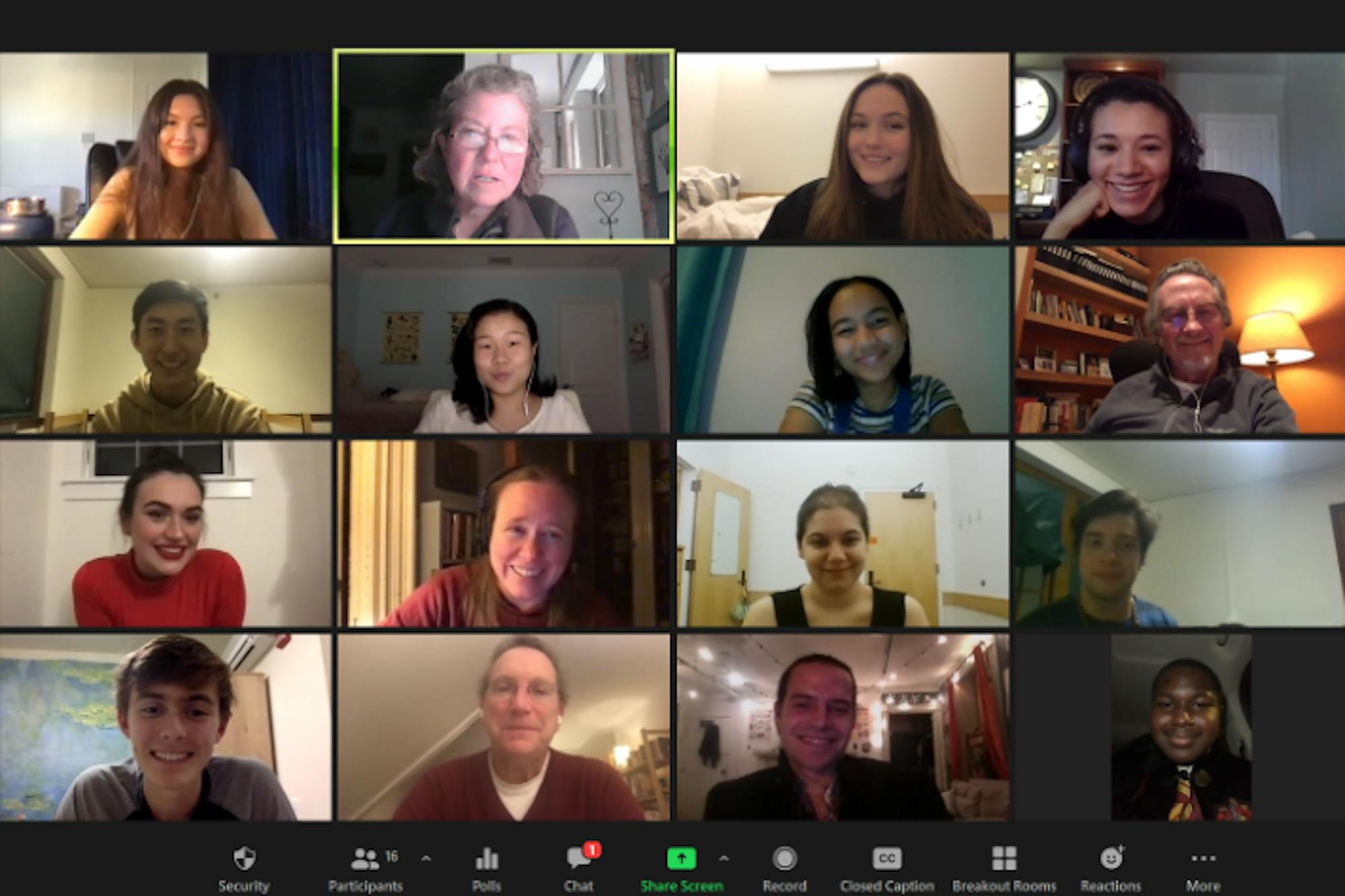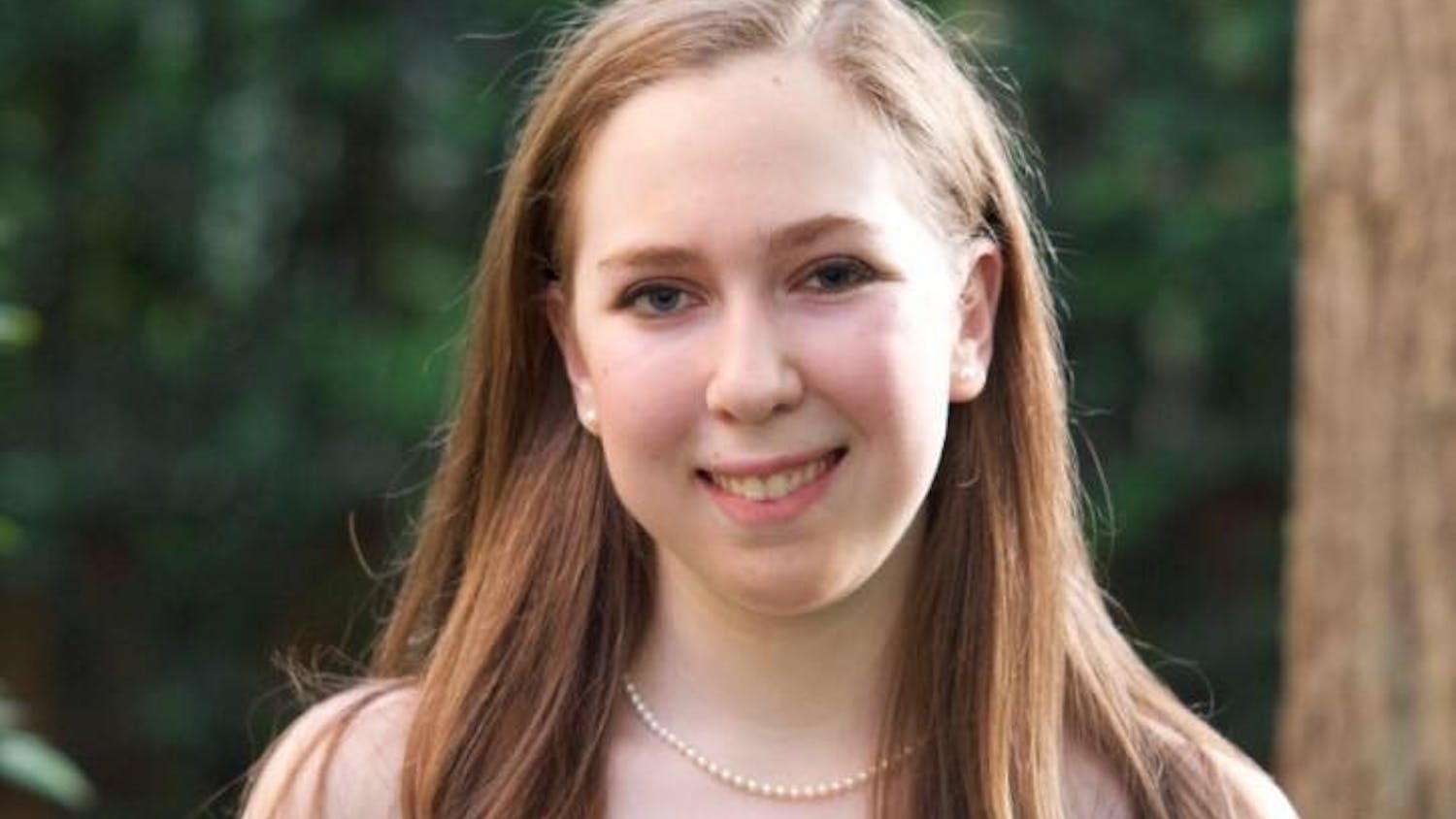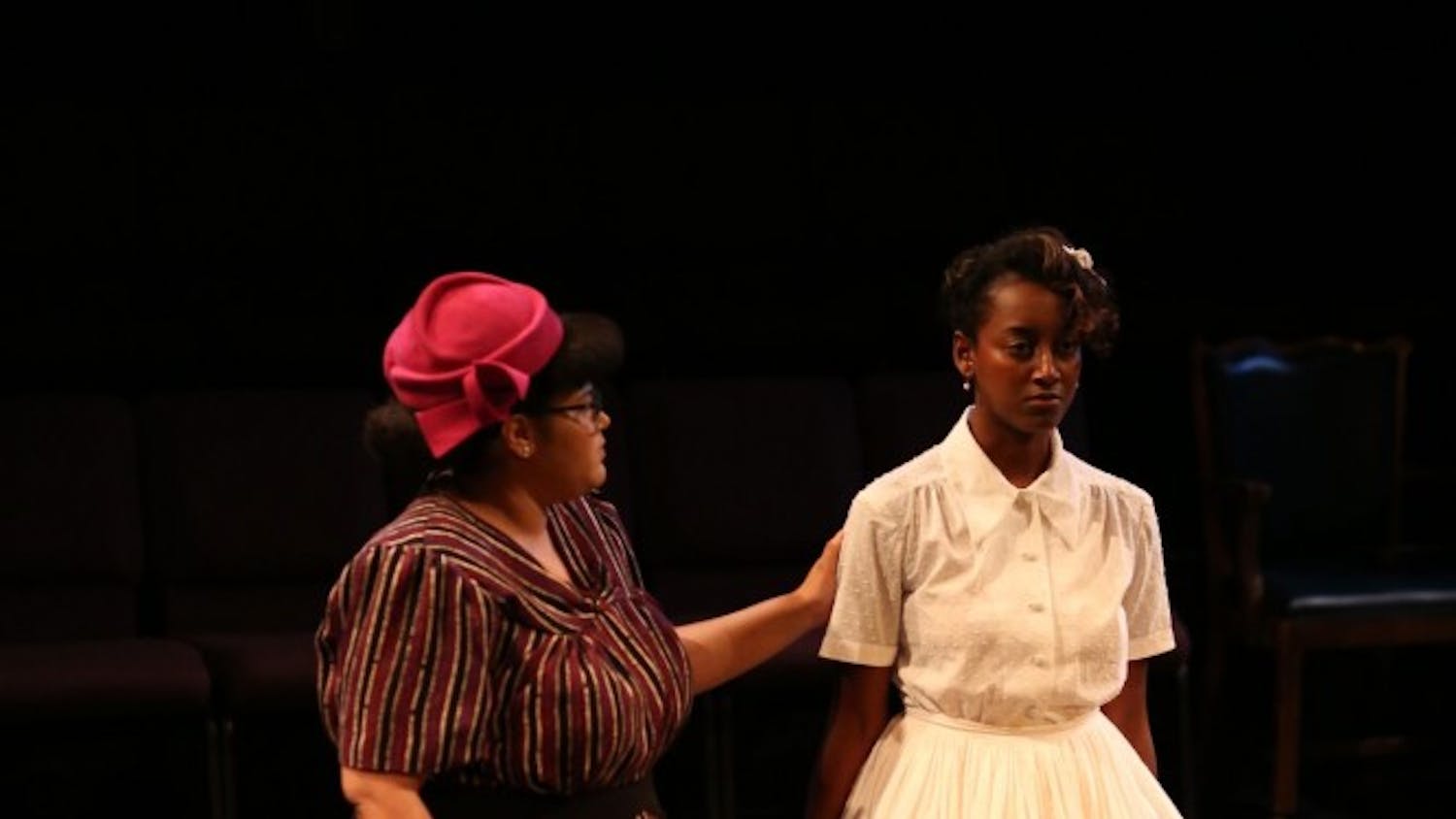The Dartmouth theater department’s MainStage production for the term, “Faith, Hope and Charity,” premiered this past weekend, marking the department’s first-ever radio play. Adapted from the original German play written by Ödön von Horváth and translated by Péter Fábri, the production brings the European story into an American context.
Theater professor Peter Hackett directed and adapted the play, moving the setting from the streets of Vienna, Austria to the streets of his hometown, Washington, D.C.
The story follows a young woman named Elisabeth, played by Reagen Readinger ’23, who struggles to make ends meet in Washington, D.C. during the Great Depression. Elisabeth’s story takes place alongside the 1932 Bonus Army March, during which thousands of World War I veterans — many homeless and starving after the economic crash — stormed and occupied the nation’s capital demanding the early release of their promised bonuses.
The play is told in five vignettes, which the theater department presented over three separate nights, from Oct. 31 to Nov. 2. Over the course of the three episodes, Elisabeth’s financial situation oscillates between improving and deteriorating. She quickly learns of how her nation’s justice system systematically disadvantages the poor. Her interactions with hostile employers, antagonistic police officers and a compromised love interest each bring her closer to despair.
The audience observes two parallel quests for financial independence, sought after by both Elisabeth and the Bonus Army marchers, with the production ending on a profoundly dark note.
History professor Annelise Orleck, whose work focuses on American political history, shared her expertise with the cast and crew to help guide the production.
The production’s stage manager, Naomi Lam ’21, said that as a theater and history double major, “it was really cool to have a conversation about theater and history at the same time.”
Samantha Lazar, the Hopkins Center for the Arts curator for academic programming, sat down with Orleck for an interview that is currently available on the theater department’s website. In the interview, Orleck described the moment leading up to the Bonus March as “two years of intense social protests all over the country,” for which the Bonus March was the culminating protest.
While the play takes place almost nine decades ago, the story sounds as if it could have occurred sometime this year.
“Unless you can find a contemporary reason to do a play, there’s no reason to do it,” Hackett said. “It has to speak to the moment. When I was writing this, I was very much aware of the parallels between what happened to the Bonus Army marchers and what has been happening to Black Lives Matter protesters all over the country.”
Anticipating the shift to virtual programming due to COVID-19, Hackett decided to convert the play, originally designed for the stage, to the purely auditory form of radio. Before the in-person theater world shut down because of the pandemic, Hackett was already in the process of adapting the play on his own.
“We were in the theater department looking for a project this fall that our students could do, and I said, ‘Well why don’t I adapt this show that I’m in the process of writing, and I’ll adapt it for the radio,’” Hackett said.
Pre-production, the transition from stage to radio posed several challenges and learning opportunities for all involved. For one, rehearsals could not occur in person, so the cast and crew had to figure out how to tell the story without bodies on a stage. Speaking on the difficulty of acting with just your voice, Lam remarked that “so much of your stage time is figuring out, what are you going to do with your hands? How are you going to move across the stage? It's so different in audio land.”
Assistant director Lexi Warden ’21 said she kept tabs on the script to ensure that the production made sense to the audience given the limitations of radio as a medium.
Warden and the director had to question whether each potentially confusing line in the play “[did] not make sense because it's translation, because it's language that's [from the] period … or because we're on the radio and we're not going to be able to see anybody.”
The transition between an in-person and radio show was further facilitated by sound designer Jane Shaw, who put all the pieces together and made the actors’ voices come to life. By adding a combination of music and sound effects, Shaw made sure that listeners would both understand the production’s storyline and experience the emotional impact of the script.
Productions like this enlighten us about what art can look like moving forward. Warden shared her insight on the importance of remote theater.
“The art that many theater artists have been creating during this time is a really good reminder of how to make art available to more people,” she said.
All three episodes of the production are available through the Hopkins Center’s YouTube page, and the conversations on the production hosted by Lazar are available through the theater department’s YouTube page.





